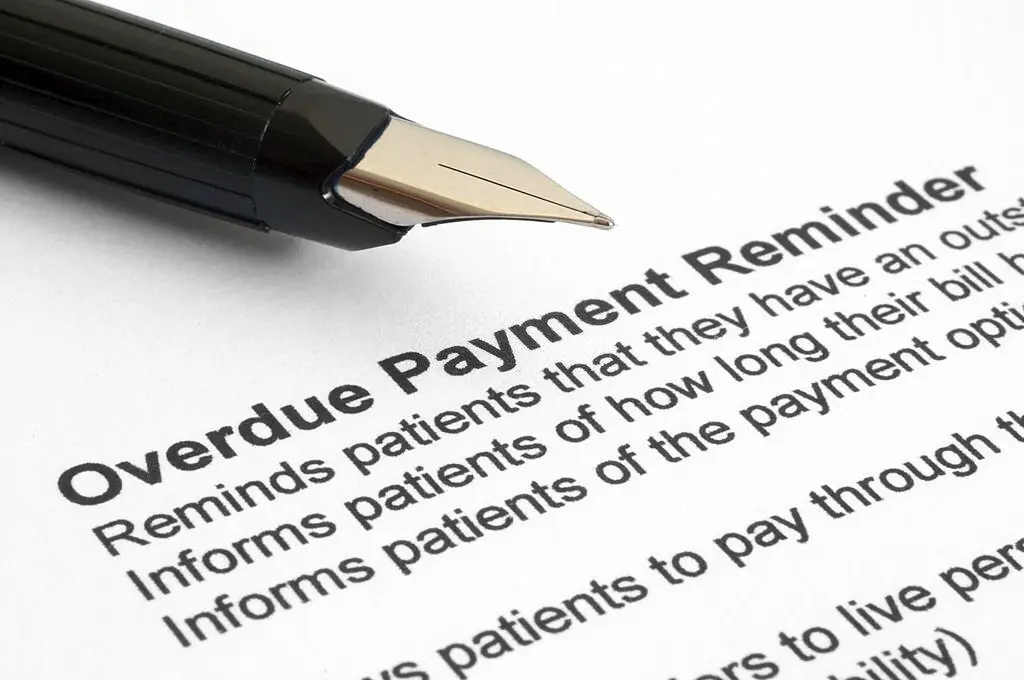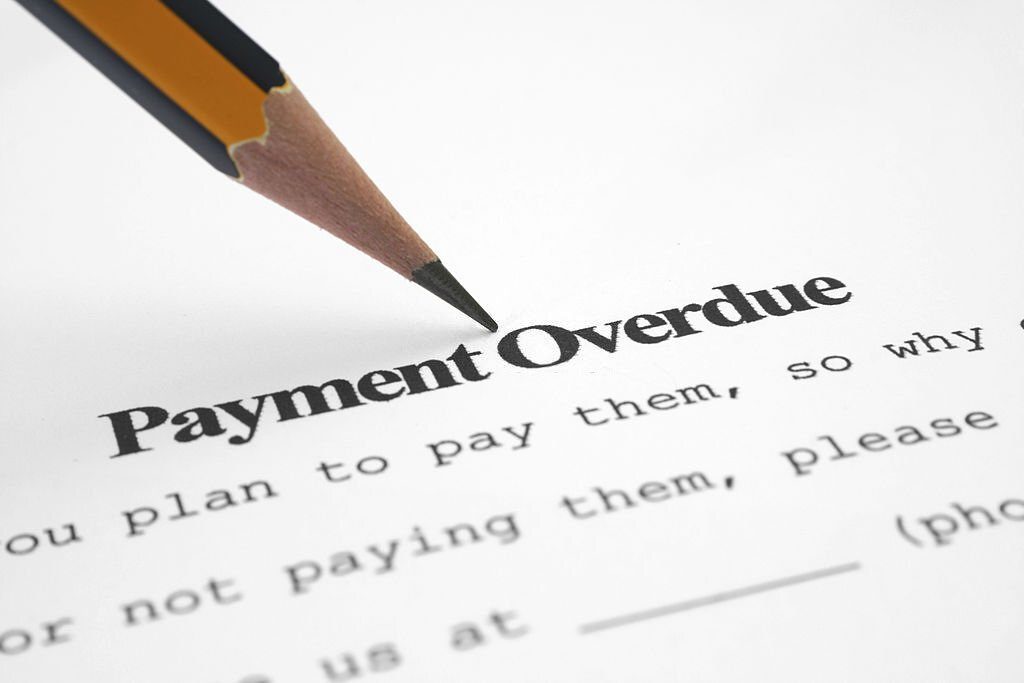
The consequences of not paying alimony can be enormous and can also vary from state to state. Just like any actions we take in life, you should expect consequences for your failure to pay spousal support.
Regardless of whether we agree with it or not, the legal process allows for support payments to be made to an ex-spouse. Therefore, judgment for arrearages and contempt may go against you if you don’t pay alimony.
Either the parties consent to a set payable amount at the time of the divorce, or a judge will order the amount that the judge believes is reasonable based on the law and the couple’s specific circumstances.
Oftentimes, the spouse who is responsible for paying alimony does not want to do so, can no longer afford to do so, or believes they should not be required to do so.
When is Alimony Considered Late?
Generally, alimony is considered late when it is consistently not paid on time. The keyword here is ‘consistency’, meaning the recipient should exercise patience or seek clarifications from the payor spouse if the alimony is late in a particular instance.
If the payment is consistently late or not paid at all, then there is a case to seek enforcement via a petition for contempt in the court. Otherwise, you will face the consequences of not paying alimony.
If you initiate a contempt case based on a single payment, or even if the payments come a week or three overdue but on a regular basis, the court is unlikely to find the party in contempt.
Also, the judge is unlikely going to award reimbursement for your filing expenses and costs of service. Attorney fees are significantly more unlikely to be awarded.
What Happens if I Don’t Pay for Alimony?

A lot can go wrong if you Don’t Pay for Alimony
A common question by payor spouses who don’t want to, or are unable to pay their alimony obligations is “will I be held in contempt of court if I fail to pay?”
Being held in contempt of court is one of the most typical ramifications of refusal to adhere to an existing alimony commitment. This can lead to a penalty as well as a court-ordered repayment of any unpaid alimony.
Courts, on the other hand, are typically hesitant to fine or imprison those who fail to pay alimony orders or agreements, realizing that it may simply make it more difficult for them to make the required alimony payments.
Rather, the court may take additional measures to enforce the legal consequences of not paying alimony, such as withholding the defendant’s driver’s license or putting an instant lien on their bank accounts or assets to recover any unpaid support.
What If I Can’t Pay for Alimony?
Your court order can be modified if the situation has changed since your divorce was finalized and you and/or your ex-spouse now have different economic statuses.
This implies that the part of your divorce order that determined the amount and regularity of your support payments will be modified to reflect the court’s new judgment.
A court may lower or even terminate your alimony payments based on the financial evidence you bring to the table. Spousal support orders are rarely permanent.
Can You go to Jail For Not Paying Spousal Support?

Yes You Can You Can Go to Jail For Not Paying Spousal Support
If you fail to pay a spousal order imposed by the court, the judge may hold you in contempt. The court has the jurisdiction to sentence you to jail for a period of time under certain sections of the alimony code.
The popular actor in “Dukes of Hazzard” movie, John Schneider was jailed for not paying delinquent spousal support.
Furthermore, the court may require you to engage in a work-release program or provide community service during this period. Any income you earn from this job would be used to offset your spousal support obligations.
What To Do If You Cannot Pay Your Obligation
There are times when life happens and you are unable to keep up with the court-ordered alimony or agreement. Also, it may be that your ex finances have changed and you either want the alimony canceled or reduced.
In such cases where you want to avoid the consequences of not paying alimony, here are the legitimate things you can do if you cannot pay your alimony obligations:
Proving Your Inability to Pay Alimony
You must produce precise documents of your current financial situation to convince the court that the alimony order or agreement should be reduced or canceled.
If you are wondering what happens if I stop paying alimony, know that the financial data are required to show how paying the mandated amount will put a severe financial hardship on your household.
If your ex-spouse’s needs have altered since the divorce was completed, you may be entitled to request the court for relief.
If your ex has found a new job and is now earning twice as much as they were when you first divorced, you may be able to petition to a judge to lessen your payment because your ex no longer requires the income to sustain themselves.
How to Avoid Paying Alimony
While we assume you are aware of the consequences of not paying alimony, you may be interested in totally avoiding paying the alimony altogether, legally or illegally. In such a case, look to this article – how to avoid paying alimony.
What to Do if Your Ex-Spouse Refuses to Pay Alimony
Failure to pay alimony can land your ex in prison, but there are other actions you can take if you’re not receiving the money you’re entitled to.
Your best option might be to speak with your ex and ascertain why. There may be a legitimate reason, such as a job loss or an unexpected expenditure.
However, it is not acceptable for someone to just discontinue paying their alimony obligation. In such cases, you may need to take any of the following actions to get them to pay up
Issue an Alimony Demand Letter

Issue an Alimony Demand Letter as a last-ditch effort
An alimony demand letter (or Spousal Support demand letter) is meant to be issued when an alimony-paying spouse fails to make a payment on time. To prove payment, It’s one of the best alimony payment documents to keep.
It’s meant to serve as a reminder and precursor for filing a lawsuit to have any agreement enforced and payment made. It’s basically a last-ditch attempt to get the non-paying spouse to pay.
To utilize this letter, the recipient spouse includes the name of the payor spouse, the amount due, the payment schedule, and the first default date. This information is necessary for the court to take any action regarding alimony non-payment.
Petition The Court For Alimony Enforcement
You should inform your attorney of the number of payments your ex has delayed or defaulted and what you learned about the circumstances. Your attorney can ask the judge to intervene by filing a motion with the court.
If it gets to such a stage where the spousal support back pay needs to be enforced, here is a complete article about what to do when spousal support is not paid.
Conclusion
The consequences of not paying alimony are huge and can even land the defaulter in jail. So it is mandatory to endure it’s paid, even if not possible on the very date it’s supposed to.
If however, you notice a change in your finances that will make it impossible for you to keep up, then you should petition the court for a variation. This can also happen if you notice the recipient spouse has a better financial situation meaning he or she will be needing less of your support money.
Also, the recipient spouse should know the options available to them for handling payor spouses that adamantly refuse to pay or are delaying payments for no justifiable reasons.




